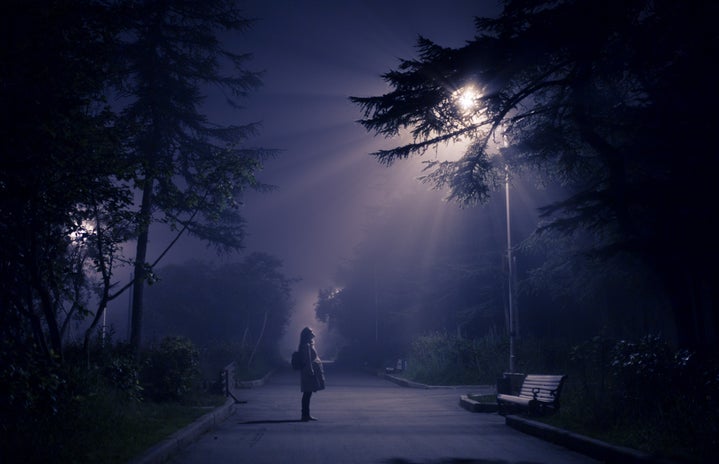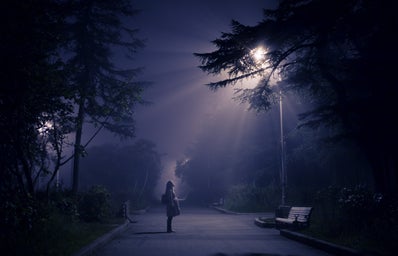Why women no longer feel safe walking alone
“Text me when you get back”
“Are you home yet?”
“Message me when you’ve left”
These messages are familiar to many of us women, often sent daily for something as simple as walking to a shop down the road, but seem foreign to our male friends and housemates. As many readers may already know, these messages are often a common response to when one of my girlfriends or I leave the house, as if the responsibility of female safety on the street rests solely on the shoulders of us – the potential victims. With the current rise in violence and harassment against women every day, it’s safe to say that it’s becoming an epidemic that women themselves are having to take care of.
Sabina Nessa was a 28-year-old teacher, who was recently attacked and murdered on a walk to a pub just five minutes away from her home in Kidbrooke. Sadly, her body was found the next day covered in leaves in Cator Park. For a lot of uninformed men, this murder is just a rare occurrence; a one in a million chance that women “shouldn’t worry about”. However, what they fail to realise is that for women this is a very real nightmare that has come true once again. The case of Sabina is a tragedy that mothers, daughters and female friends fear will happen every time the sun sets. Almost every woman I have spoken to about these issues say the same thing – the streets aren’t a safe place for women and action needs to be taken immediately!
In light of the recent developments in the Sarah Everard case, it’s only a matter of time before these issues are once again are swept under the rug by law enforcement, and also by the public. In a recent interview with the Metropolitan Police, regarding the case, they stated that the best thing for women to do if approached by a police officer and they feel unsafe is to “run into a house” or “wave down a bus”. Even though this advice is appalling, it doesn’t come as a surprise to many women.
In a recent conversation that I had with some of my male friends, I discussed how unsafe I feel walking by myself, even as early as 6 pm and they shared the same concerns, only for different reasons. They expressed how they also feared being attacked by a group of men, which I shared with them. I discussed what ways they could help women feel safer walking on streets, for example by staying far away from them or crossing the road. I also advised them to walk their girlfriends home when possible and call out any misogynistic or harmful behaviour from their male counterparts. It was a healthy conversation as they have taken my advice and implemented it into their lives – I’m glad that the conversation helped provide them with a new perspective on these issues.
However, it’s not like this in many cases as I have heard conversations from men about how it’s “not a big deal” and “it’s not that bad around here”. What they fail to realise is how a large majority of women have been subjected to sexual harassment or assault – with a UN Women UK survey finding that 96% of young women and 80% of all women had experienced this. The sheer ignorance that is expressed by most men towards these issues is one of the main reasons why they aren’t being resolved.
So, what can we as individuals and a society do to help women feel safer on the streets and prevent more cases like Sabina Nessa and Sarah Everard’s?
The resolution lies in the hands of the men in our lives; we need to be having these difficult conversations with men, and educating them on the very real fear that women across the world face. It’s important for us to be active in this fight and demand better standards for women – so streets are safe for us to walk on. We need to be active in our fight- signing petitions for more street lamps and attending protests to show our unity with women, but it’s not just our responsibility.
We must urge the government to pass improved laws on the consequences for people who commit sexual assault, and place more cameras in dark areas as well as to conduct routine background checks on police officers – so that women actually feel protected by law enforcement. It will be a long battle, but with the right education and resources, we can hopefully succeed!
Words by: Eilidh Kirk
Edited by: McKenzie Burnett


